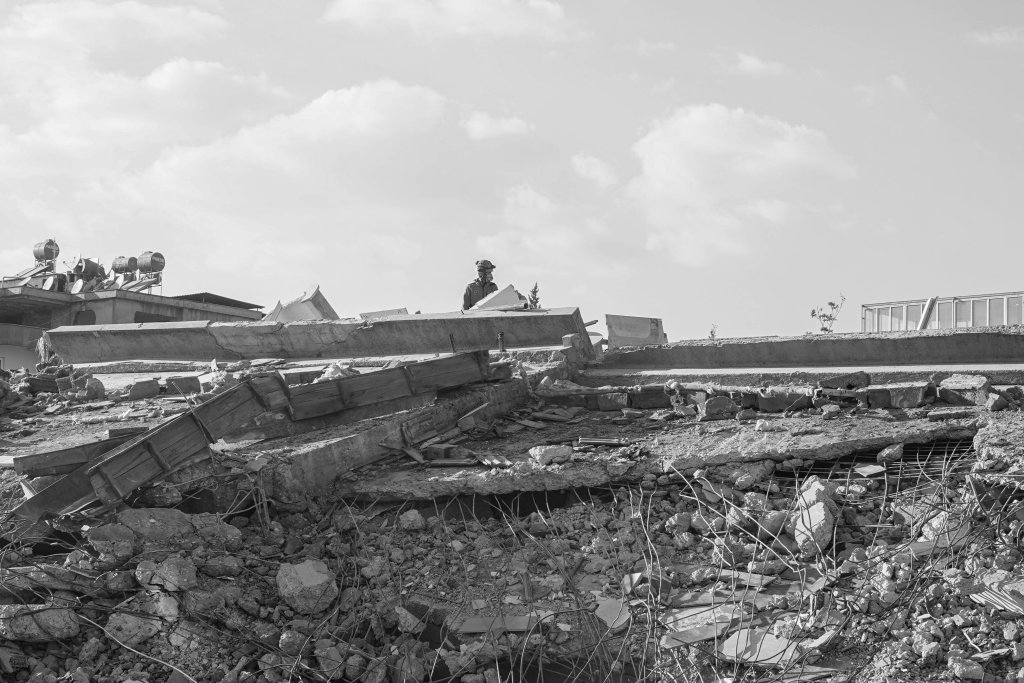
The year 1999 introduced a new concept, and subsequently, a new facet, into the Greek-Turkish relationship: “earthquake diplomacy” – a reference to the high-level and diplomatic efforts to improve the bilateral relations after two earthquakes hit both countries. Greek-Turkish relations have since then been analyzed as a case study of “disaster diplomacy”, an emerging literature that acknowledges the increasing role and effect of disasters in international affairs and on diplomatic relations.
Disaster diplomacy covers all disaster-related activities (pre-disaster, post-disaster) by various actors such as sovereign states, international organizations, non-profit groups, businesses, or non-sovereign territories by examining to what extent and under what conditions disasters facilitate or create diplomacy (Kelman 2006). Studies have so far created a typology of cases based on at least five elements of disaster diplomacy: active vs. passive diplomacy, in which actors deliberately engage in disaster diplomacy or do not seek to connect their diplomatic activities to disaster-related efforts; propinquity of the states; their aid relationship, i.e., whether the states mutually help each other, combine their aid to a third disaster-affected actor or have a donor-recipient relationship; operational level of the disaster diplomacy such as government-, non-government- or people-led activities and its purpose.
Yet despite their acknowledgement of the existence of variation in disaster diplomacy, analysts seem to have missed a highly relevant aspect of international relations: “emotional diplomacy” whereby states and non-state actors deploy, engage, and invoke emotional discourses, gestures, and actions into their interactions with other actors. In other words, how emotions shape interpersonal and intercommunal diplomatic relations or are used as a diplomatic tool should be a significant aspect of disaster diplomacy.
It may be argued that one of the descriptors of disaster diplomacy, propinquity, i.e., neighborliness of the states is as close as it gets to the affective component of bilateral relations in a post-disaster environment. But even that category is defined in terms of geographical proximity and not by the affective dynamics of bilateral relations. Thus, it does not account for the discursive and behavioral demonstration of, for example, sympathy at the diplomatic and public level and how they might accompany already existent mutual feelings of, for example, long-lasting enmity and mistrust.
On the Greek-Turkish disaster diplomacy, many scholars agree that Greek-Turkish rapprochement in 1999 was not an immediate consequence of the earthquakes. While Kelman (2012), for example, argues that on both sides, officials were reluctant to move forward but “were dragged along by their constituents and the media,” Ker-Lindsay (2000) suggests that the two earthquakes had “a multiplying and legitimizing effect on diplomatic rapprochement”, which was already underway especially by the initiatives of two Foreign Ministers. Yet in both accounts the emotional dynamics of bilateral relations were overlooked. Thus, in what follows, we briefly offer a snapshot of emotional dynamics of Greek-Turkish disaster diplomacy.
First and foremost, the 1999 earthquakes destroyed the eternal enemy myth between Turkey and Greece. When a 7.6 earthquake first hit Turkey’s Marmara region in 17 August 1999, Greece became one of the first countries to send aid, including rescue teams, two mobile hospital units with doctors and nurses, as well as two firefighting planes to help put out the fire at the Tüpraş oil refinery. Many Greeks and Greek NGOs also collected money, donated blood, and sent various forms of humanitarian aid to the victims of the earthquake. Similarly, when Athens was hit by a 6.0 earthquake in September of the same year, the Greek ambassador in Ankara received a phone call from Turkey’s AKUT (Search and Rescue Association) only 15 minutes after the earthquake and in a few hours AKUT’s search and rescue team was ready to leave for Athens. A Turkish citizen even called the Greek Embassy and offered to donate one kidney to an earthquake victim in need, because a Greek citizen did the same thing in the wake of the İzmit-Gölcük earthquake.
Turkish and Greek foreign ministers, İsmail Cem and George Papandreau, had already initiated a dialogue in early 1999 to improve bilateral relations in the aftermath of the PKK leader Abdullah Öcalan’s capture in the Greek embassy in Nairobi and within the framework of NATO’s military intervention in Kosovo. Yet earthquakes on both sides of the Aegean made Turkish and Greek publics focus on their shared geography and common destiny, and triggered long-forgotten feelings of solidarity and neighborliness. Thus, by the end of September 1999, feelings of sympathy and gratitude for each other were full on display among the Turkish and Greek people. The Greek Embassy in Ankara received numerous gifts, flowers, and phone calls after the Greek solidarity with the earthquake in Turkey. In explaining the seemingly unexpected solidarity of the Greek people, Greek Ambassador to Turkey simply said that “The earthquake in our neighbour was perceived as a disaster in Greece… the earthquake has destroyed our taboos.” Thus, although Turkish and Greek politicians were politically and strategically convinced of the need to improve relations before August 1999, the emotional atmosphere created in the wake of the earthquakes allowed the idea of a Turkish-Greek rapprochement to permeate the hearts and minds of the publics on both sides.
These popular feelings of solidarity and gratitude for “komşu” (neighbour) were once again triggered 24 years later, in February 2023, by another devastating earthquake in Turkey. In fact, both the pre- and post-earthquake bilateral relations demonstrated similarities to that of the 1999 earthquakes when the high-tension political atmosphere filled with feelings of mistrust and enmity were momentarily superseded by public and official empathy. Greek Prime Minister Mitsotakis was one of the first callers of Turkish President Erdoğan to offer his condolences and Greece’s help, while Greek Foreign Minister Dendias became the first high-ranking official from a European Union member state to pay a visit to the earthquake-stricken Hatay province. Urging the need for “feelings of humanism”, Greek officials pointed out the deadly earthquake bringing “our two peoples closer together on a human level.”
Such official sentiments resonated with the popular public feelings of solidarity and were magnified by the media. The municipalities of Greece collected and sent large amounts of humanitarian aid, including “35 large trucks carrying necessities, such as bed sheets, blankets and tents”. The Greek public channel’s opening its morning show with a very emotional song “I told the World that I love you” with images from the earthquake devastation and the images of the Greek rescue team’s save of two people from under the rubbles, one of which was a seven-year old girl, filled the public discourse on both sides as well as the international reporting. In fact, one of the images inspired by this rescue has gone viral and become one of the iconic images of the post-earthquake bilateral context on both sides. In April 2023, President Erdoğan awarded an honorary medal to the Greek ambassador to Turkey and the Greek EMAK-EKAV search-and-rescue team for their efforts to rescue the earthquake survivors.
Experiences of 1999 and 2023 show that disaster diplomacy, which flourished between Turkey and Greece after the earthquakes, had a significant emotional dimension both at the official and public levels. Feelings of empathy, solidarity, and neighborliness abounded in both post-disaster environments, paving the way for the ideas and efforts to improve bilateral relations. In 1999, Turkish and Greek policy makers were surprised by how quickly the “komşu” identity got the upper hand over the “enemy” identity and cleared the path for a Turkish-Greek rapprochement. In 2023, the neighborliness with all its affective components such as feelings of humanism, empathy, solidarity, friend in need through difficult times, was once again, on the display.
Post-disaster Turkish-Greek interactions of 2023, however, are being experienced with the memories of the post-1999 background where an important process of rapprochement was eventually replaced by tensions and conflict. Thus, both politicians and publics hold a more cautious optimism about the future of Turkish-Greek relations today compared to the past. The extant observations tell us that the affective dynamics of disaster diplomacy may not eliminate other emotional aspects of bilateral relations such as disappointment, mistrust, or resentment, but may supersede, or at least mitigate, them for a period of time. How such co-existence of various emotions develop and affect bilateral relations in the long term remains to be explored in detail.
This research was supported in part by Işık University’s Research Fund (BAP Project no: 23D101)

Prof. Dr. Özlem Kayhan Pusane , Işık University
Prof. Dr. Özlem Kayhan Pusane works in the Department of International Relations at Işık University, İstanbul, Turkey. She graduated from the Middle East Technical University in 2002 with a B.Sc. degree in International Relations. She received her M.A. degree in Political Science from the University of Notre Dame (Indiana, USA) in 2004, where she also received her Ph.D. degree in Political Science in 2009. Her work has been published in journals such as South European Society and Politics, Middle Eastern Studies, Conflict, Security and Development, Turkish Studies, and Uluslararası İlişkiler. Her research interests lie in the areas of traditional and critical security studies, civil-military relations, counterinsurgency, counterterrorism, and Turkey’s security and foreign policy.

Prof. Dr. Aslı Ilgıt , Çukurova University
Prof. Dr. Aslı Ilgıt works in the Department of Political Science and International Relations at Cukurova University, Turkey. She completed her B.A. in Political Science and International Relations at Boğaziçi University, her M.A. in International Relations and her Ph.D. in Political Science, both at Syracuse University (U.S.A.). Her research interests include theories of state identity, politics of identity, foreign and security policy, emotions, and migration. Her work has been published in Political Psychology, Review of International Studies, British Journal of Politics and International Relations, Security Dialogue, Mediterranean Politics, Uluslararası İlişkiler, the World Financial Review, and MERIP. Since 2022, she has been one of the Associate Editors of Mediterranean Politics.
To cite this work: Ozlem Kayhan Pusane & Aslı Ilgıt, “International Relations amidst Disasters: Turkish-Greek Perceptions and Emotion Discourses in 1999 and 2023 Earthquakes” , Panorama, Online, 6 February 2024, https://www.uikpanorama.com/blog/2024/02/06/amidst-disasters/
Copyright@UIKPanorama. All on-line and print rights reserved. Opinions expressed in works published by the Panorama belongs to the authors alone unless otherwise stated, and do not imply endorsement by the IRCT, Global Academy, or the Editors/Editorial Board of Panorama.


